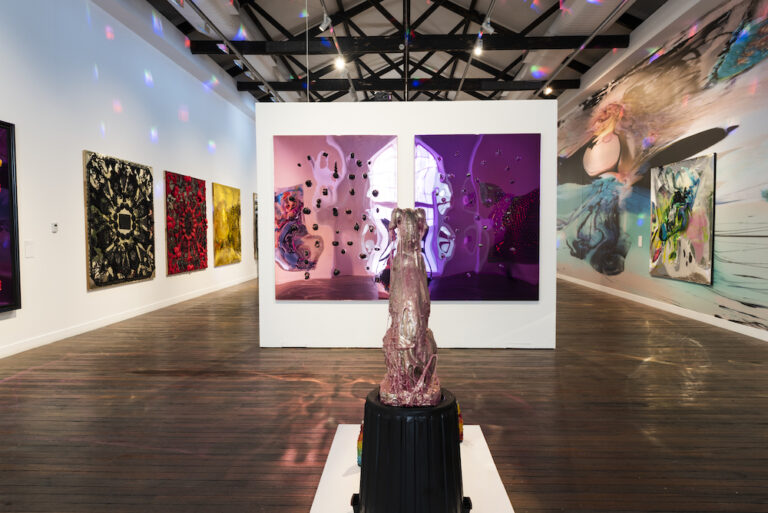
The Small Business Party aims for Senate

By Allison Hore
After an unsuccessful bid for the seat of Wentworth in last month’s by-election, the Small Business Party has set its sights on the NSW state election.
Twice elected independent Sydney councillor Angela Vithoulkas founded the party earlier this year to advocate for small business owners who she believes major parties overlook.
“The cynic in me will say that in every election, whether local, state or federal, every party claims to have some allegiance to small business, but that is only around for that brief election cycle, but after that they forget all about the small business owner,” she says.
In next year’s March NSW state election the Small Business Party will be vying for seats in both the upper and lower house. And Ms Vithoulkas is hoping to crowdfund $350,000 to pay for the campaign.
She chose crowdfunding instead of running fundraising events due to the lower overhead costs and the fact that more people are able to get involved.
“We need the help and the support of the small business community and those who are interested in small businesses, not just those in Sydney or in NSW,” she says.
According to ABS statistics small businesses account for 97% of all businesses registered in Australia and around 70% of Australians are employed by small or medium businesses.
The CEO of the NSW Business Chamber, Stephen Cartwright, believes that representation of small businesses in parliament is important.
“Anytime the needs of the small business sector are strongly advocated in our Parliaments is a good thing,” he says.
“It’s why we fought so hard to have the Small Business portfolio returned to Federal Cabinet, and why we lobbied so hard for the payroll tax threshold to be raised in the last state budget.”
To win a seat in the legislative assembly Ms Vithoulkas estimates the Small Business party will need to win around 110,000 primary votes. The party does not want to rely on preference deals to get across the line.
“We want and need the primary vote so we can stand on our own two feet,” she says.
“If we made a deal it would have to be with people who have small businesses as a very high priority as well.”
Alongside herself, Ms Vithoulkas confirms there will be three candidates running in the election. Aaron Le Saux will be running for the seat of Newtown. His small business in Surry Hills is suffering as a result of the light rail construction, Mr Le Saux and his partner have run a popular wine bar in Surry Hills since 2015. It started having financial difficulties this year.
“We are on Crown Street, and we knew it was coming. But even today we are 50% down in our numbers,” Mr Le Saux explains.
“Crown Street was epic. It was one of the best places in the Sydney scene and having a 50% drop in foot traffic for a business is absolutely devastating.”
Ms Vithoulkas also knows what it’s like to lose business. Her restaurant, Vivo Cafe, closed earlier this year after 17 years of operation as she was no longer able to afford the George Street rent. Her situation is not unique.
“There are businesses that have been affected along the Westconnex route; there are businesses that have been affected near the new hospital.”
She says that “poor planning” from governments and companies when carrying out infrastructure and development projects is a concern to small business owners. She thinks it’s crucial for small businesses to be consulted from the start.
“Any legislation that comes before Parliament must consider small business as a priority in their policies. Small business must be a recognised part of the overall community”
The Small Business Party has also been rallying support for a class action lawsuit against the NSW Government for the impact the light rail construction has had on small businesses in the CBD.
More than 60 businesses have joined the lawsuit and they’re hoping for around $40 million in compensation. But Ms Vithoulkas wants voters to know that the Small Business Party is not anti-infrastructure, they just want to see better planning.
“We are not against infrastructure or innovation, we just want to ensure that the businesses that are there before the project are still there after it,” she says.
Mr Le Saux agrees: “Our state needs to grow. Just saying no to infrastructure is not the answer. It’s down to negotiations,”
Last week the Small Business Party launched housing affordability as their first election policy. Ms Vithoulkas says it is important to show that the Small Business Party is not a “one issue party” and that they have interest in issues which face the broader community.
The NSW Business Chamber sees concerns about energy prices as a key issue facing small businesses today. Mr Le Saux says that this is an issue that doesn’t just impact small businesses, but is a concern for all residents.
“Even though we’re the Small Business Party, energy prices are killing all of us,” he says.
“We’re not just about Small Business. We’re looking out for the interests of the entire state.”









